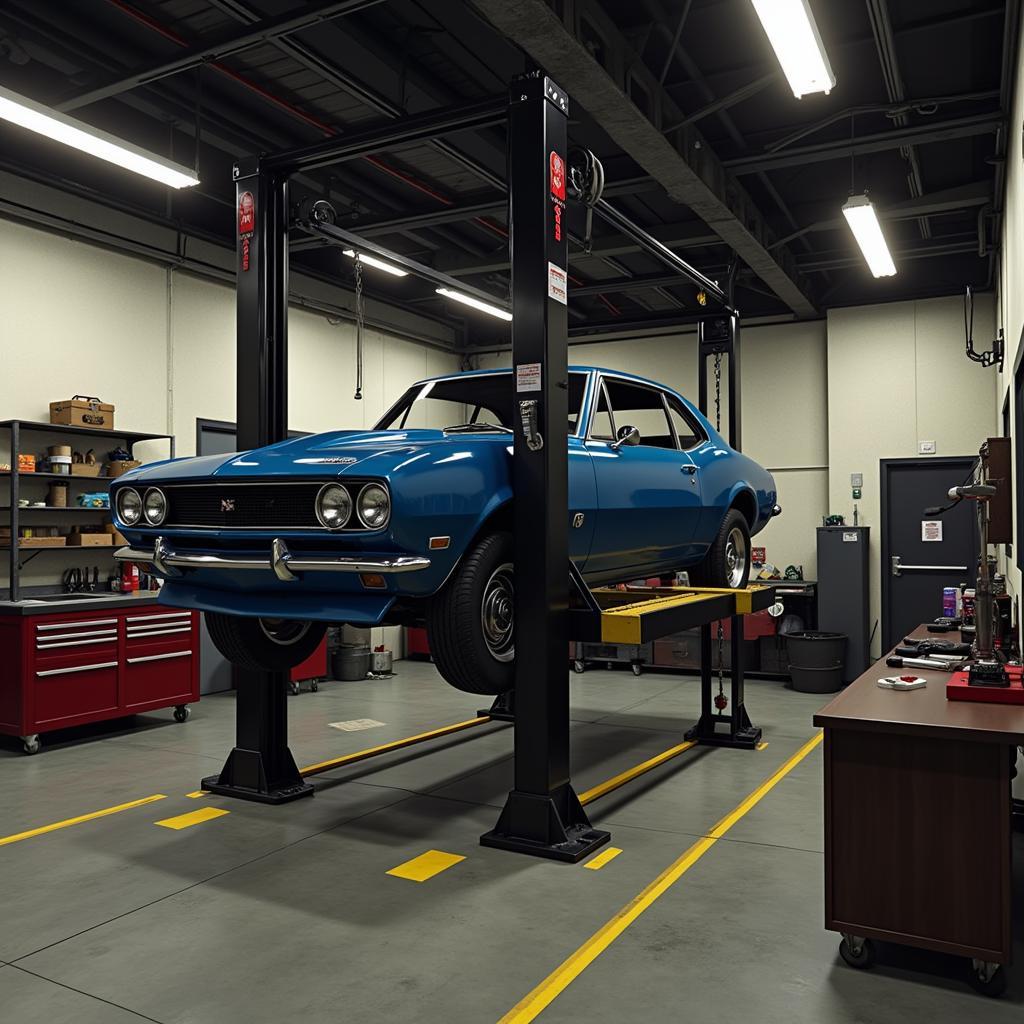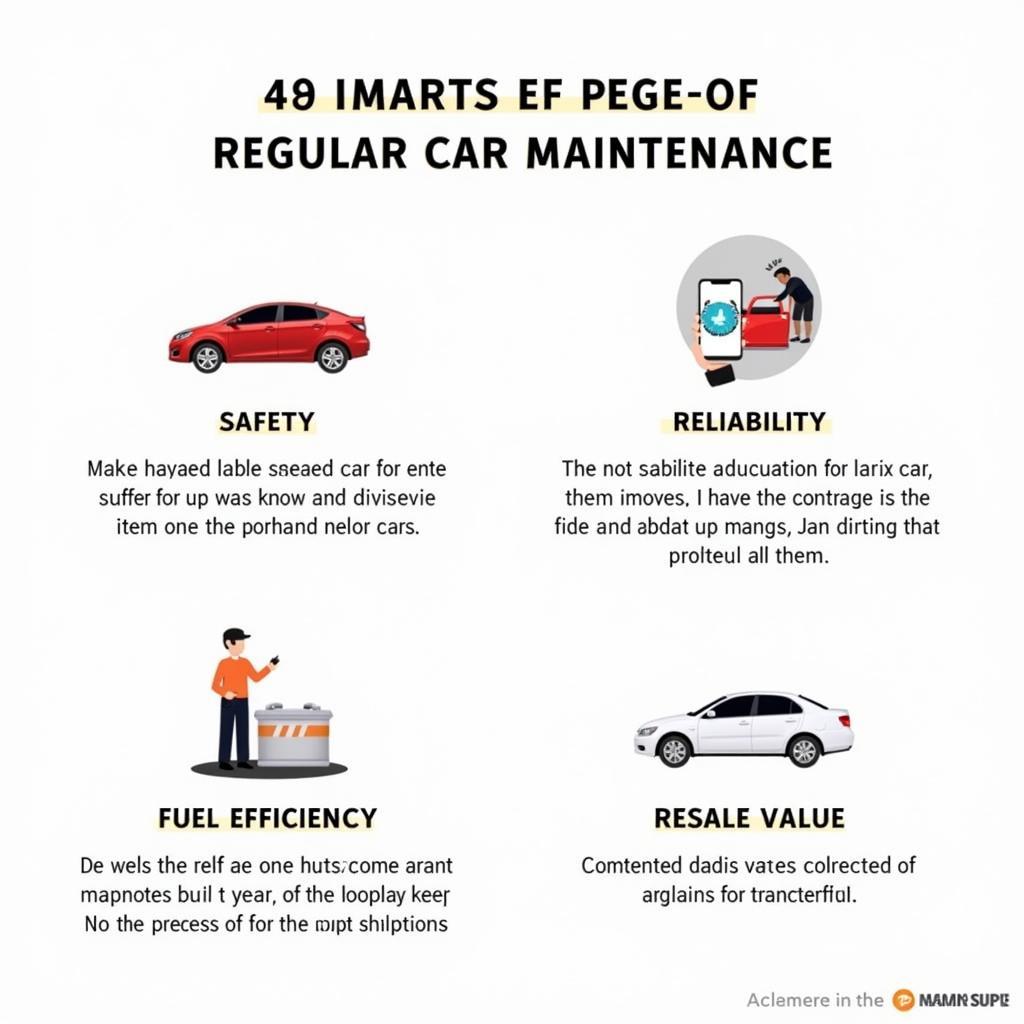Dealing with car problems can be a major headache. Whether you’re a car owner, a mechanic, or an automotive enthusiast, having the right resources to identify and solve these problems is crucial. “Car Book Problems” often refer to those pesky issues you encounter that seem to require digging through countless pages of your car’s manual.
Let’s face it, most of us don’t have the time (or patience) to decipher technical jargon. That’s why we’re here to help you navigate the world of automotive repair and maintenance.
Common Car Problems and How to Solve Them
Before you run to a mechanic for every minor hiccup, there are a number of common car problems you can likely diagnose and even fix yourself. Let’s dive into some practical solutions:
1. Engine Issues
Problem: Engine won’t start, runs rough, or stalls.
Possible Causes:
- Dead Battery: The most common culprit. Check your battery connections for corrosion and ensure they are tight.
- Faulty Starter Motor: If you hear a clicking sound when you turn the key, your starter motor might be faulty.
- Spark Plug Issues: Worn-out or fouled spark plugs can prevent your engine from igniting properly.
- Fuel System Problems: A clogged fuel filter or a malfunctioning fuel pump can disrupt the flow of fuel to the engine.
Troubleshooting Tips:
- Jump-start your car to rule out a dead battery.
- Listen for unusual sounds when starting the engine.
- Inspect your spark plugs for wear and tear.
- Check your fuel gauge and ensure you have enough fuel.
When to Seek Professional Help:
If you suspect a faulty starter motor or a complex fuel system issue, it’s best to consult a qualified mechanic.
[how to fix any problem on a car book](http://autotippro.com/how-to-fix-any problem-on-a-car-book/)
2. Electrical System Malfunctions
Problem: Headlights flickering, battery draining quickly, or electrical components not working.
Possible Causes:
- Loose or Corroded Battery Terminals: Corrosion can disrupt the electrical connection.
- Alternator Problems: A failing alternator won’t charge the battery properly.
- Blown Fuses: Fuses protect your car’s electrical circuits from overloads.
- Wiring Issues: Damaged or worn-out wiring can cause a variety of electrical gremlins.
Troubleshooting Tips:
- Inspect and clean battery terminals.
- Check your alternator belt for wear and tear.
- Consult your car’s manual to locate the fuse box and identify any blown fuses.
When to Seek Professional Help:
Diagnosing and repairing complex electrical problems often requires specialized equipment and expertise.
3. Brake System Concerns
Problem: Spongy brake pedal, squealing or grinding noises, or reduced braking performance.
Possible Causes:
- Worn Brake Pads: Brake pads wear down over time and need to be replaced.
- Low Brake Fluid: A leak in the brake lines can lead to low brake fluid levels.
- Air in the Brake Lines: Air can get trapped in the brake lines, making the pedal feel spongy.
- Damaged Brake Rotors: Warped or scored brake rotors can cause vibrations and reduce braking efficiency.
Troubleshooting Tips:
- Check your brake fluid level and top it off if needed.
- Listen for any unusual noises when applying the brakes.
- Inspect your brake pads for wear and tear.
When to Seek Professional Help:
Brake issues can directly impact your safety, so it’s crucial to have any problems diagnosed and repaired by a qualified mechanic.
Tips for Avoiding Car Book Problems
Prevention is always better than cure. Here are some proactive steps to minimize your chances of encountering those dreaded “car book problems”:
- Regular Maintenance: Stick to your car’s recommended maintenance schedule. This includes regular oil changes, filter replacements, and fluid top-ups.
- Visual Inspections: Make it a habit to perform quick visual inspections of your car. Look for any leaks, check your tire pressure, and examine the condition of your lights.
- Address Warning Signs Promptly: Don’t ignore any warning lights on your dashboard. They often indicate a potential problem that needs attention.
car rental problems and solutions
Conclusion
While dealing with car problems can be stressful, having the right knowledge and resources can empower you to troubleshoot and address them effectively. Remember, regular maintenance, early detection, and prompt repairs are key to keeping your car running smoothly and safely.
Need help diagnosing or solving a car problem? Contact AutoTipPro at +1 (641) 206-8880 or visit our office located at 500 N St Mary’s St, San Antonio, TX 78205, United States. Our team of automotive experts is here to assist you.







Leave a Reply